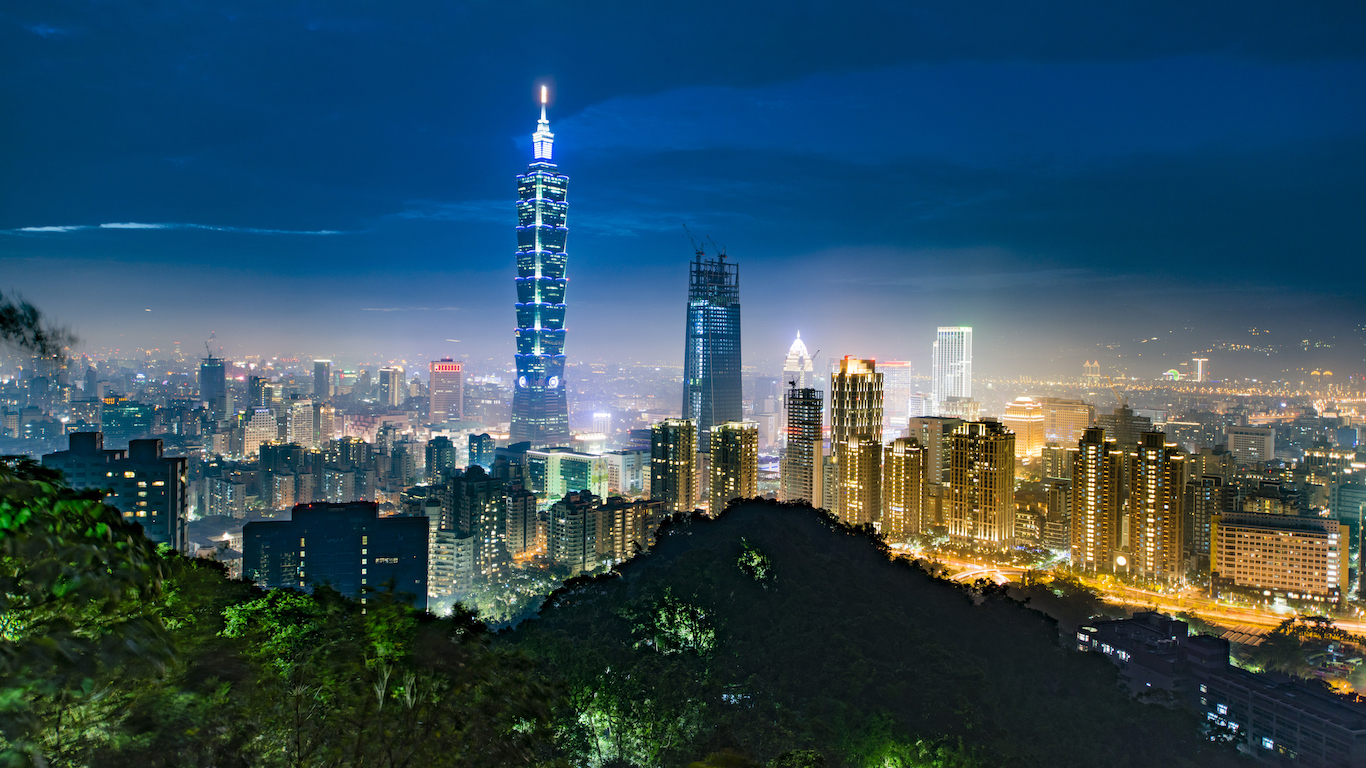
The world is becoming more urbanized. Already, 55% the population lives in cities, and the UN projects the share will rise to 68% by 2050. As the global population continues to concentrate in metropolitan areas, and as the world’s most densely populated cities continue to grow, many cities are confronted with increasing security challenges.
Growing urban areas often face problems related to the spread of slums; access to health care, water, and power; cybersecurity; and domestic and foreign terror attacks. While wealth is one factor contributing to lower crime as wealthier cities have more money to invest in digital and physical security infrastructure, other factors, such as leadership and culture, can impact the safety of a metropolitan area.
To determine the safest cities in the world, 24/7 Wall St. reviewed data from the Safe Cities Index 2017, a report from The Economist Intelligence Unit of media company The Economist Group. The report ranks 60 world cities across 49 indicators.
Click here to see the safest cities in the world
Click here to see our detailed findings and methodology
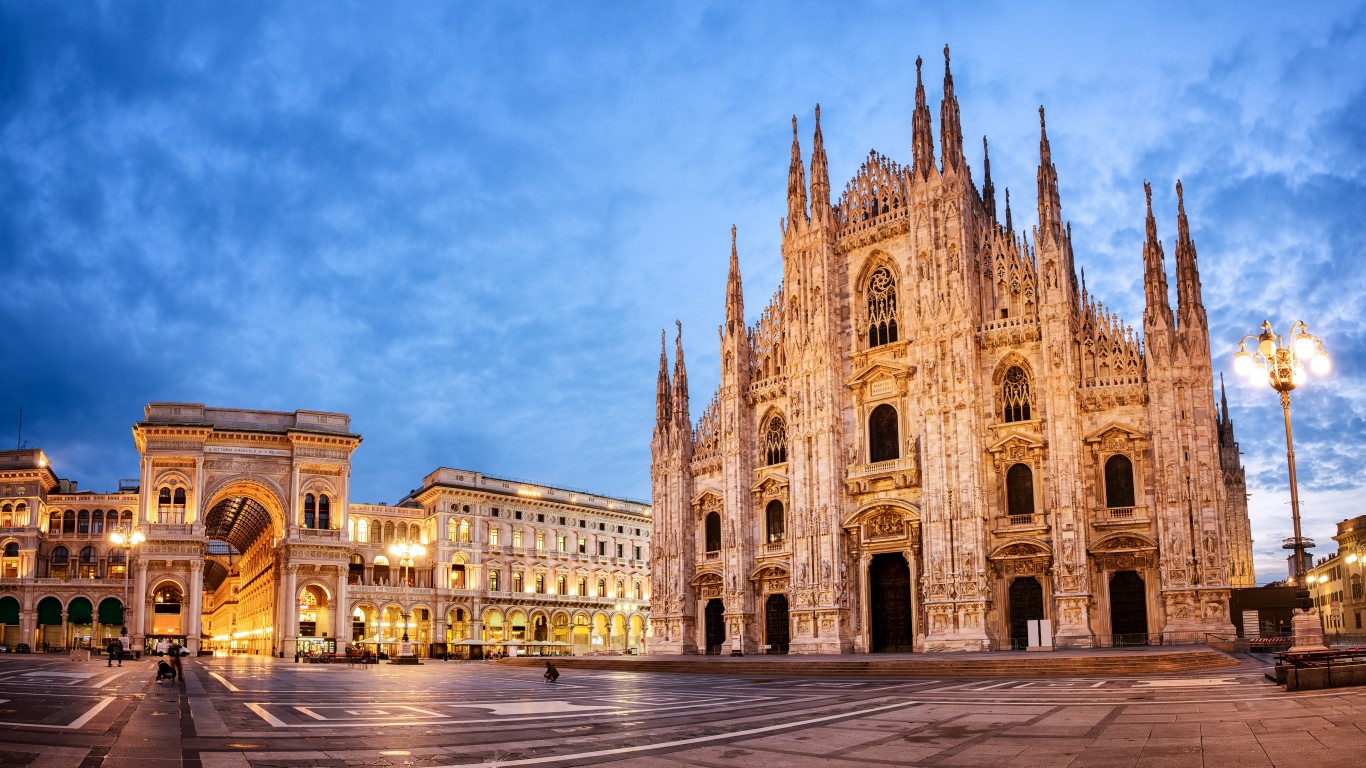
25. Milan, Italy
> Population: 3.1 million
The only Italian city among the 25 safest cities in the world, Milan ranks especially well in infrastructure security. According to several tourism guides, while Milan is generally safe for travelers, areas near the central rail station in Loreto have been known to attract pickpockets and other petty criminals.
[in-text-ad]
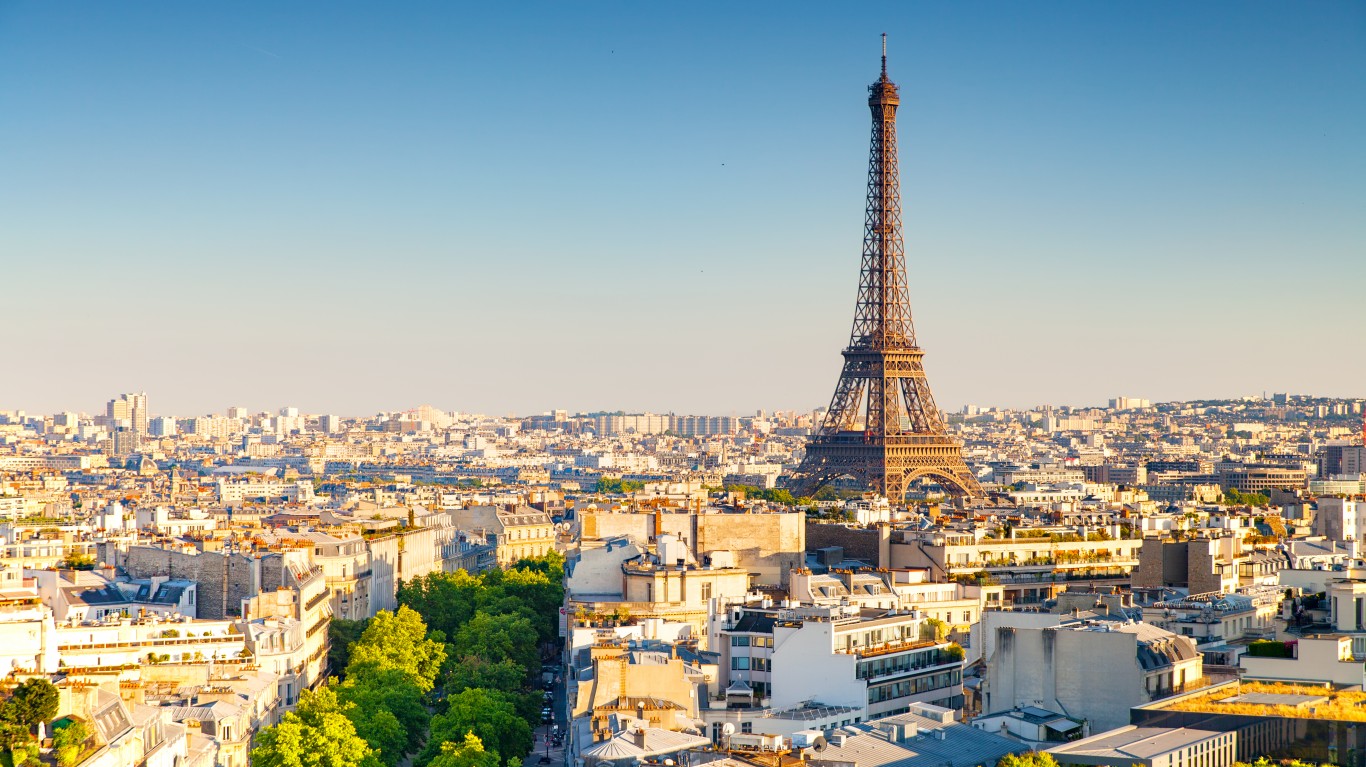
24. Paris, France
> Population: 10.9 million
While Paris ranks highly in measures of health and infrastructure, the French capital ranks in the bottom half of all world cities considered in personal safety. The city continues to struggle with terrorism, ranking seventh among world cities in the frequency and severity of its terrorist attacks in 2017, according to The Economist. A series of coordinated terrorist attacks in Paris killed 130 people in November 2015.
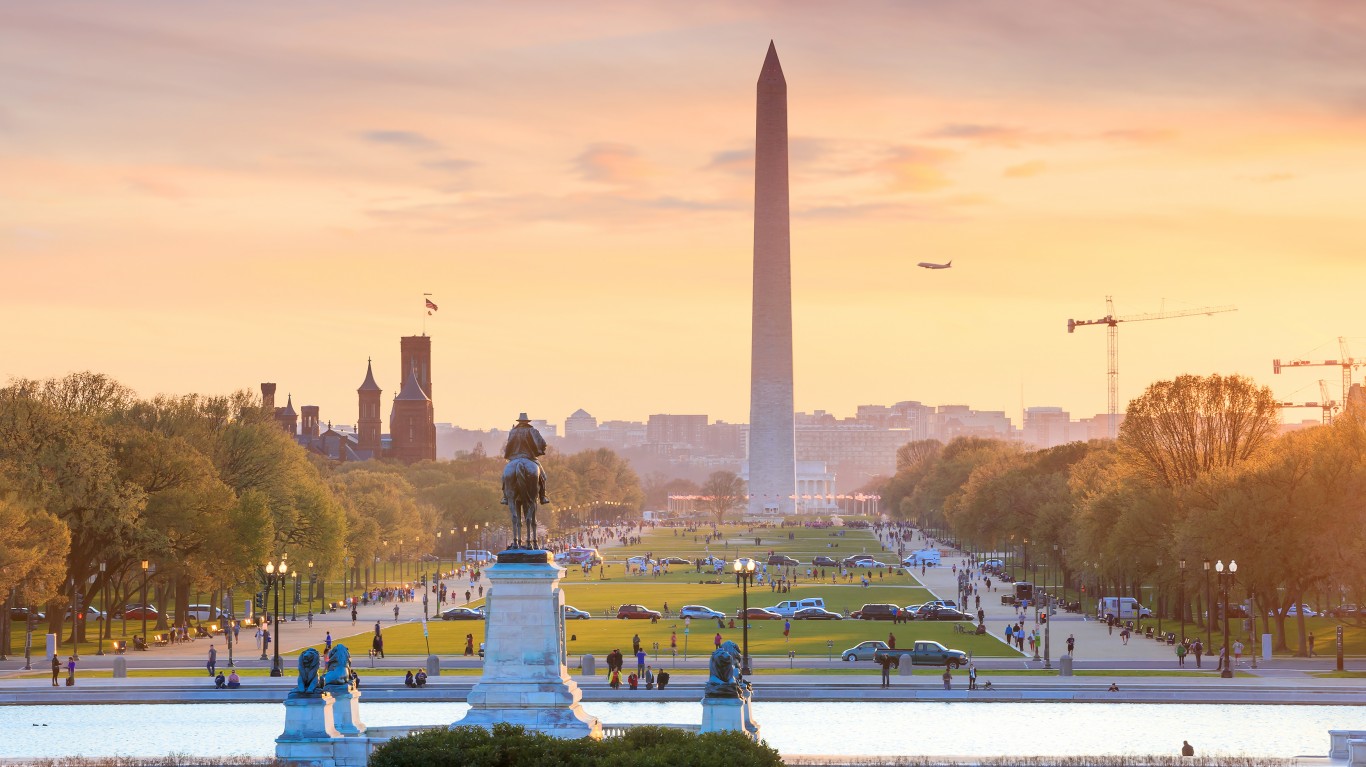
23. Washington, D.C.
> Population: 5.2 million
Like most U.S. metropolitan areas among the world’s safest cities, Washington, D.C. ranks highly in digital security. According to D.C.’s chief technology officer, the city’s cybersecurity efforts are bolstered by the presence of nearby federal cyber-focused agencies, such as the National Security Agency and the Department of Defense Cyber Crime Center.
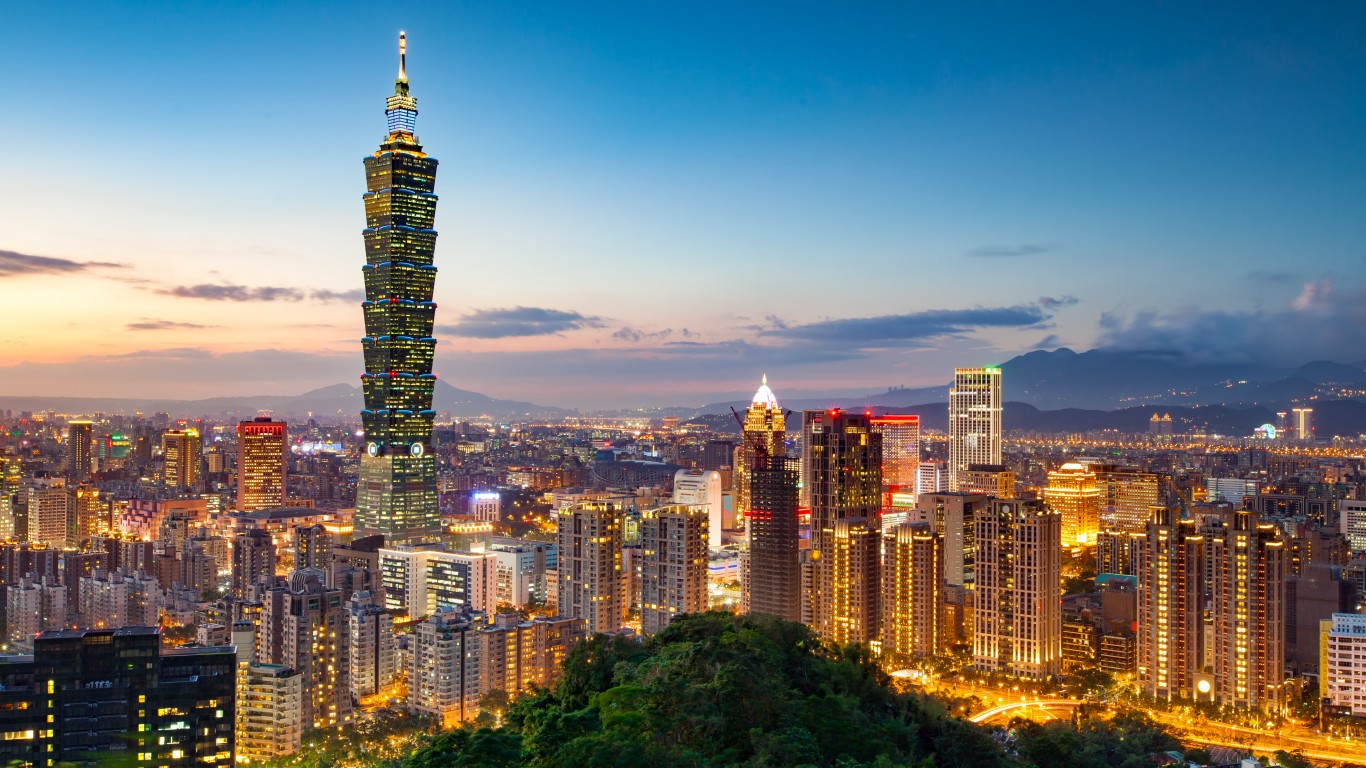
22. Taipei, Taiwan
> Population: 2.7 million
The only Taiwanese city included in the Safe Cities Index, Taipei ranks highly in health and personal security. Life expectancy at birth in Taipei is 83.6 years, among the longest of all cities and counties in Taiwan and more than 10 years longer than the global average.
[in-text-ad-2]
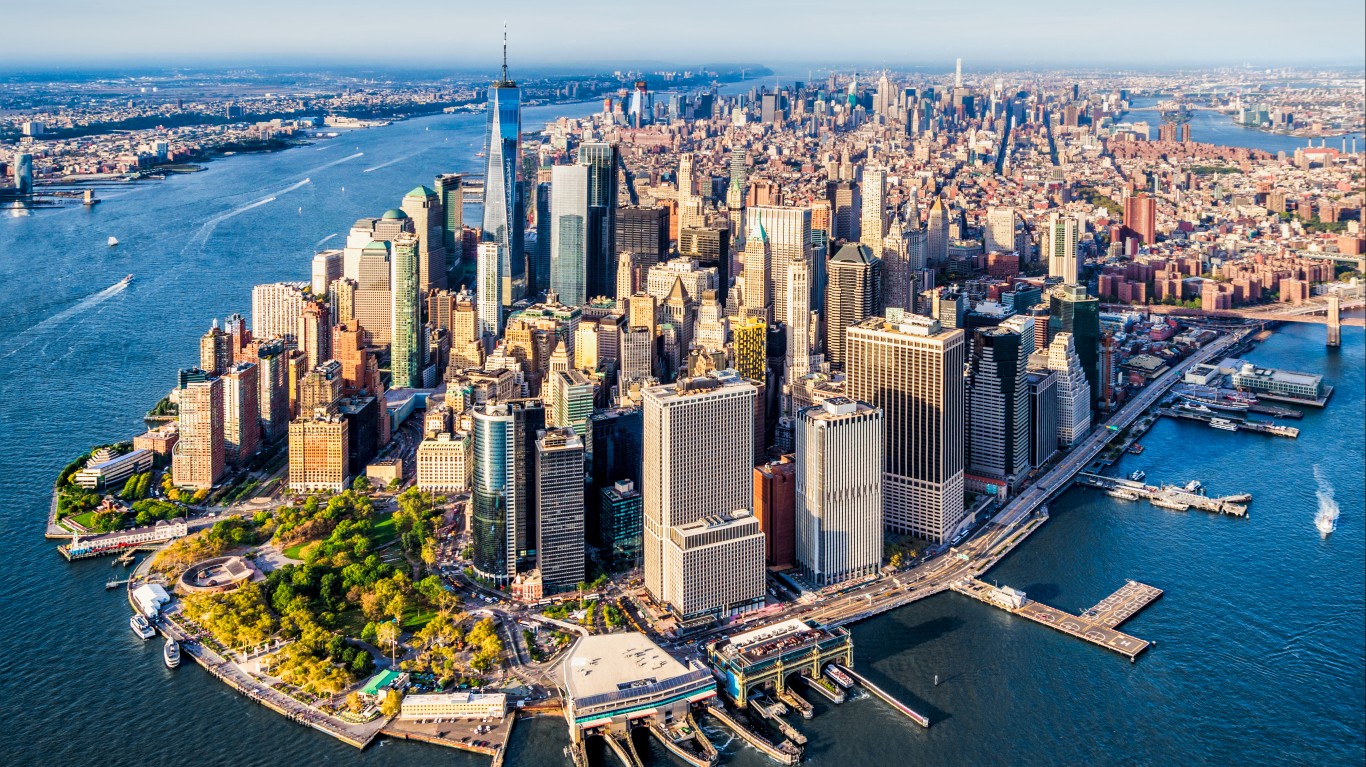
21. New York, United States
> Population: 18.8 million
Like many U.S. metropolitan areas ranking among the world’s safest cities, New York is a world leader in digital security. Like other U.S. cities, however, New York ranks worst in measures related to health security, such as access to health care and traffic safety.
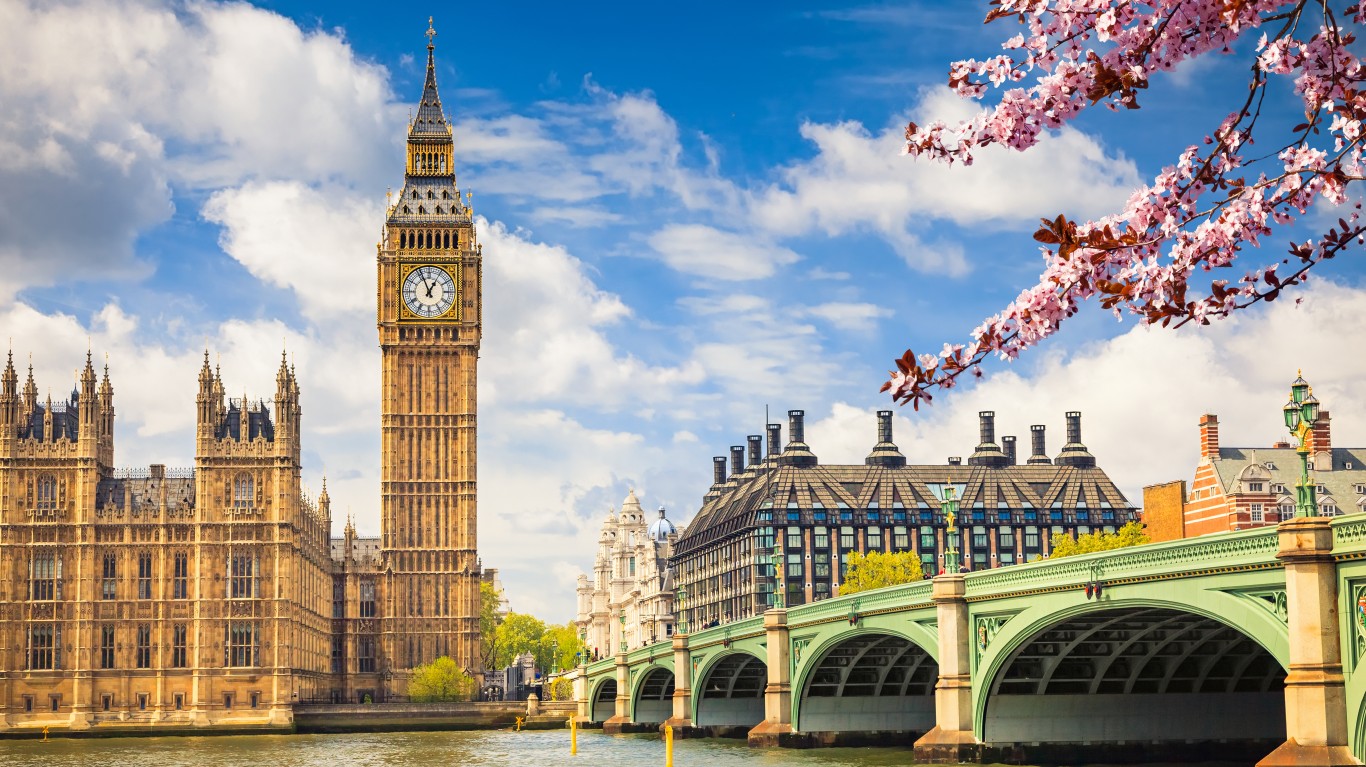
20. London, England
> Population: 9.0 million
London ranks among the top 15 world cities in measures of infrastructure and personal security. Efforts by the city that likely contribute to its high ranking include London’s wide-reaching CCTV network and the Healthy London Partnership, a collaborative health initiative that includes several local and national civic agencies.
[in-text-ad]
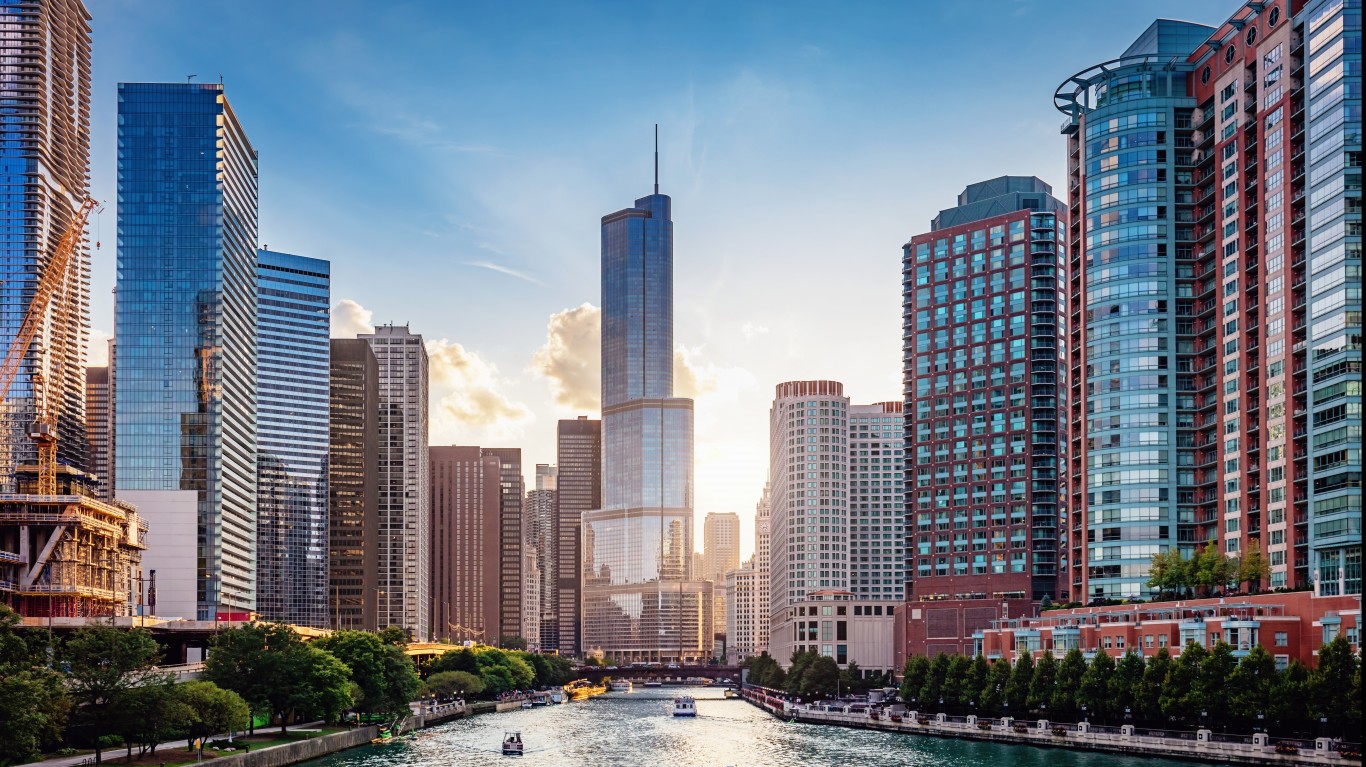
19. Chicago, United States
> Population: 8.9 million
Chicago ranks as the third best city for digital security, yet towards the middle of all 60 cities considered in measures of health, infrastructure, and personal safety. In August 2018,the University of Chicago launched the Cyber Policy Initiative, an academic program that will provide policy guidance on cyber issues to governments around the world .
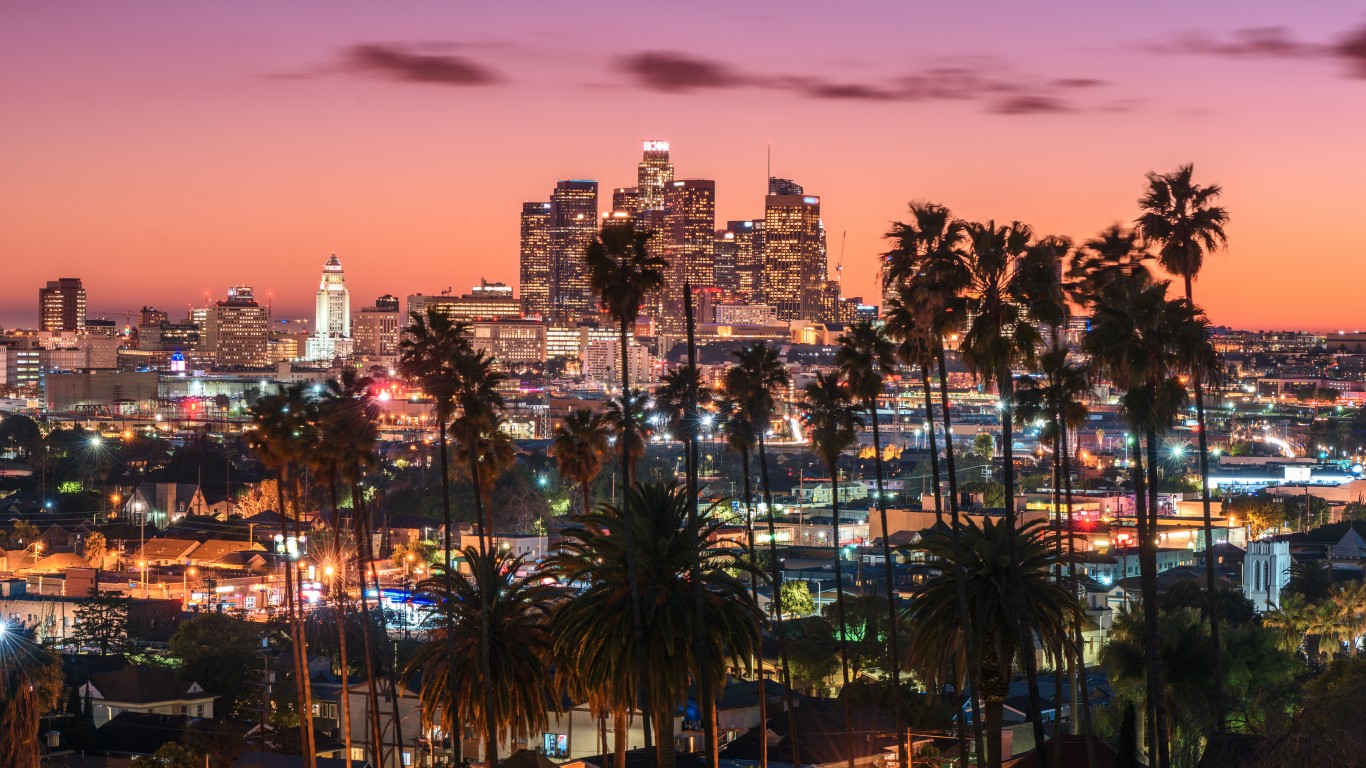
18. Los Angeles, United States
> Population: 12.5 million
The second safest major U.S. city, Los Angeles ranks highly for its digital security efforts. In August 2017, L.A. launched the Los Angeles Cyber Lab, a collaboration between city government and local business formed to help detect and mitigate the effects of cyberattacks in real time.
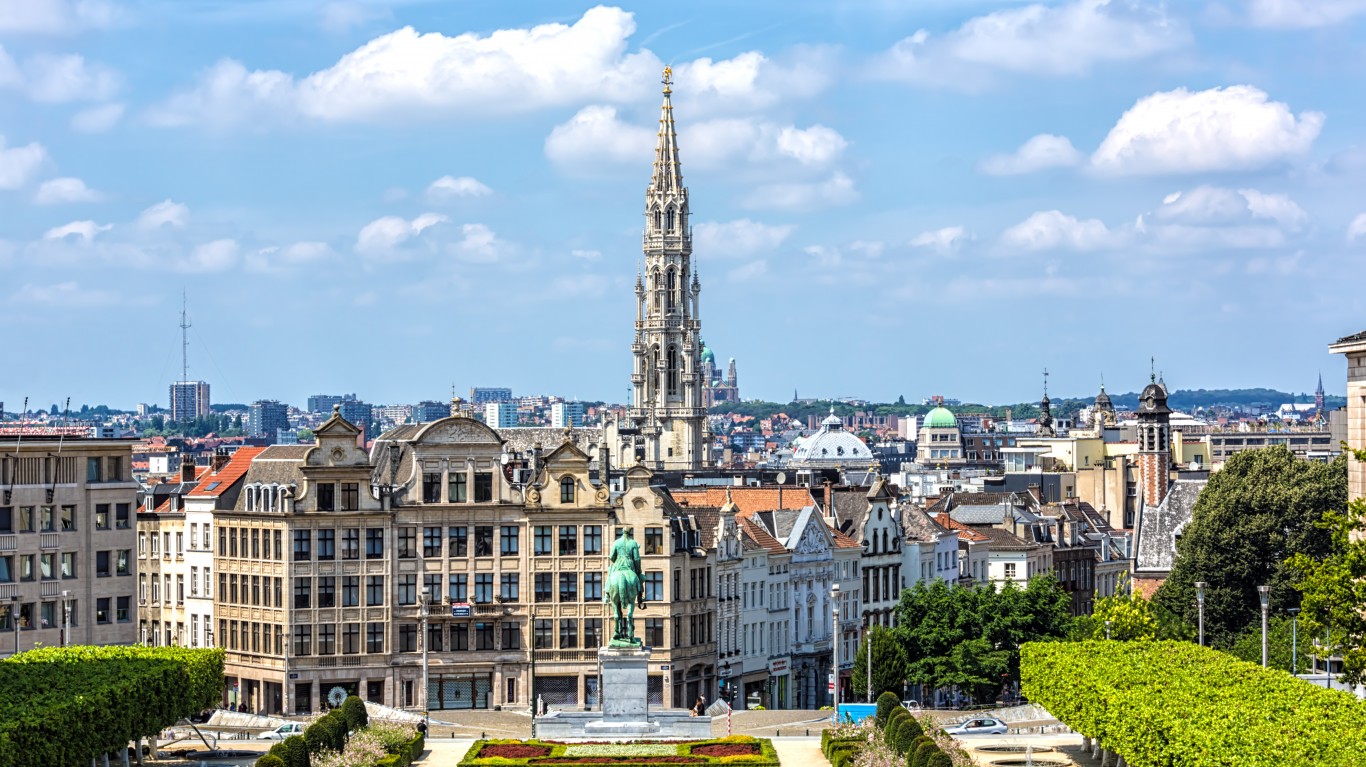
17. Brussels, Belgium
> Population: 2.1 million
Like many major cities in Western Europe, Brussels ranks highly in health security. Yet, due to the threat of terror attacks — dozens were killed in terrorist bombings in March 2016 — the Belgian capital’s worst-ranking category is personal safety.
[in-text-ad-2]
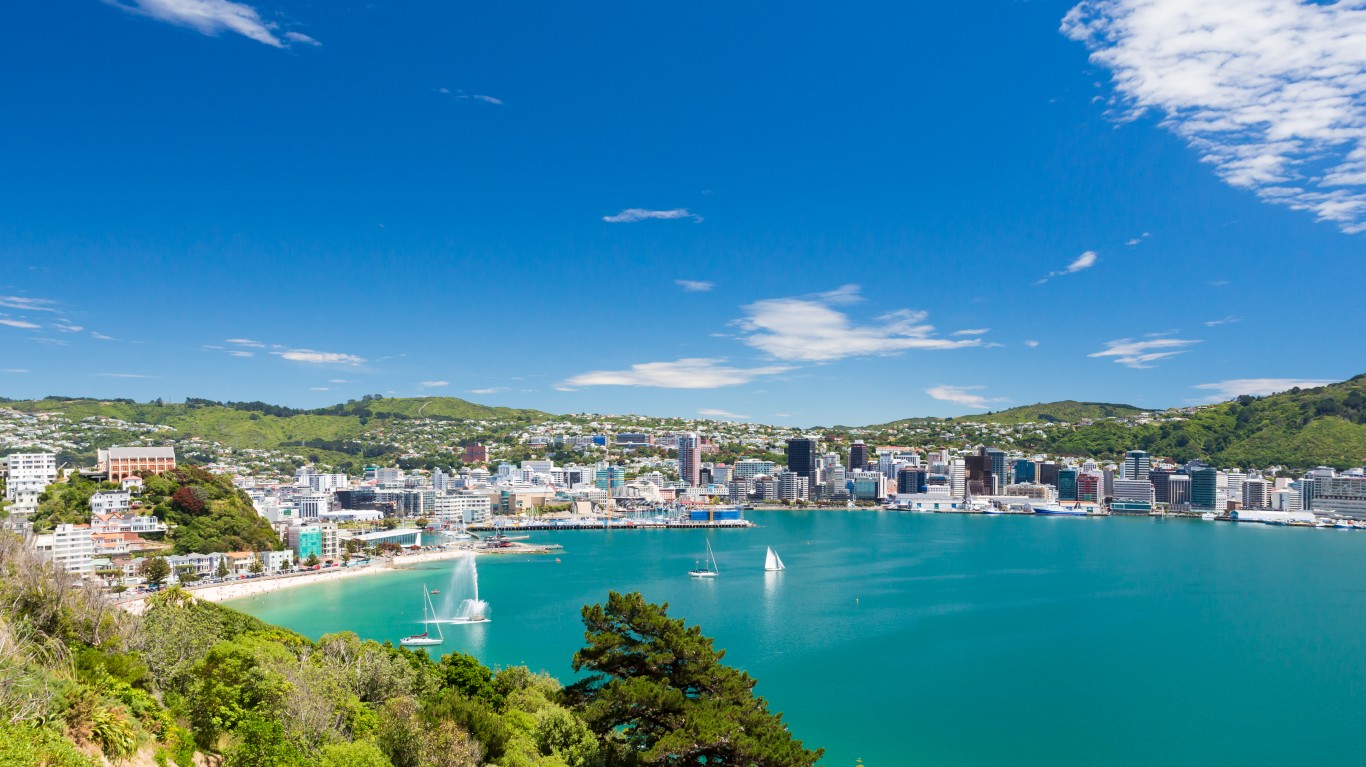
16. Wellington, New Zealand
> Population: 496,000
Wellington is one of several high- and upper-middle income cities to rank highly in personal security. While Wellington also ranks as the fifth best city for infrastructure safety, the New Zealand capital ranks towards the middle of all cities included in the index in health security.
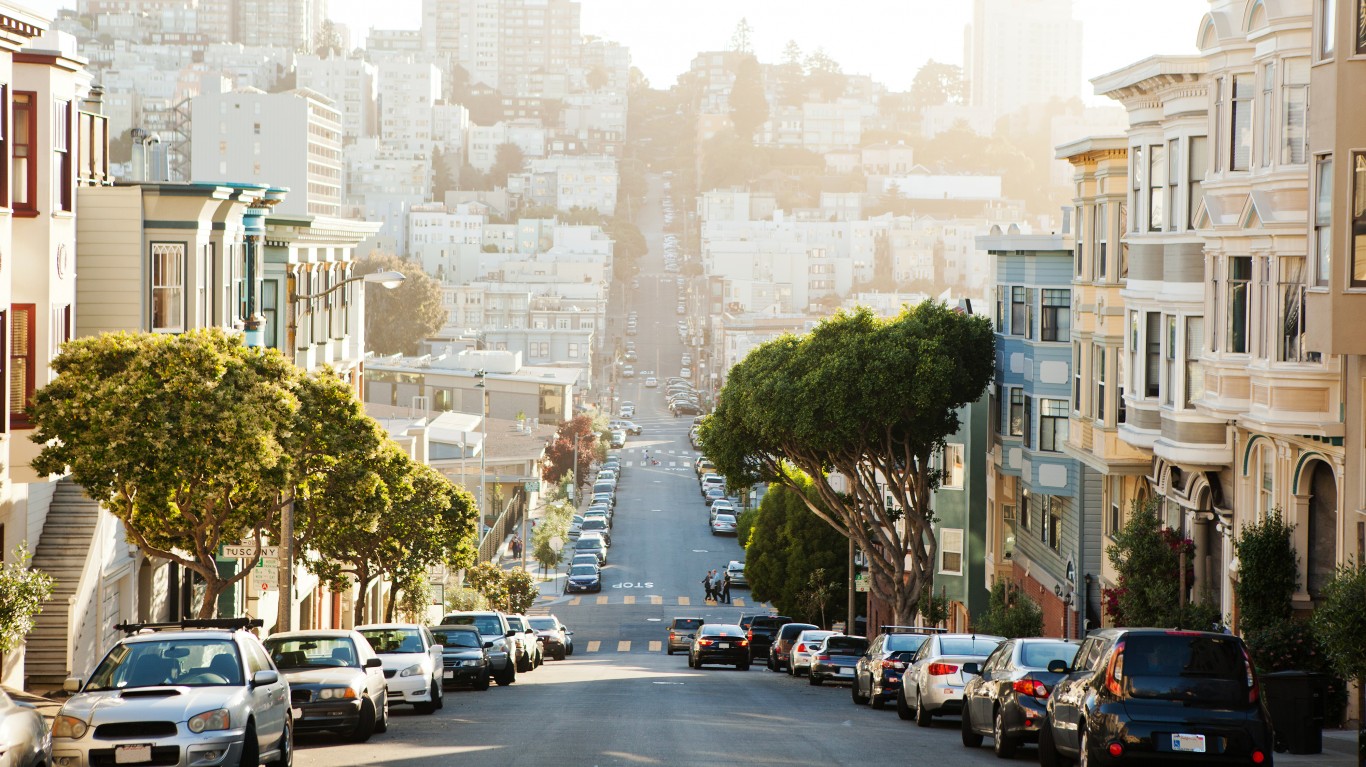
15. San Francisco, United States
> Population: 3.3 million
The safest U.S. city, San Francisco ranks highly for its digital security efforts. In May 2019, San Francisco became the first major American city to ban the use of facial recognition software by police and other agencies, a tool which, according to some privacy advocates, has too great a potential for abuse to be responsibly implemented today.
[in-text-ad]
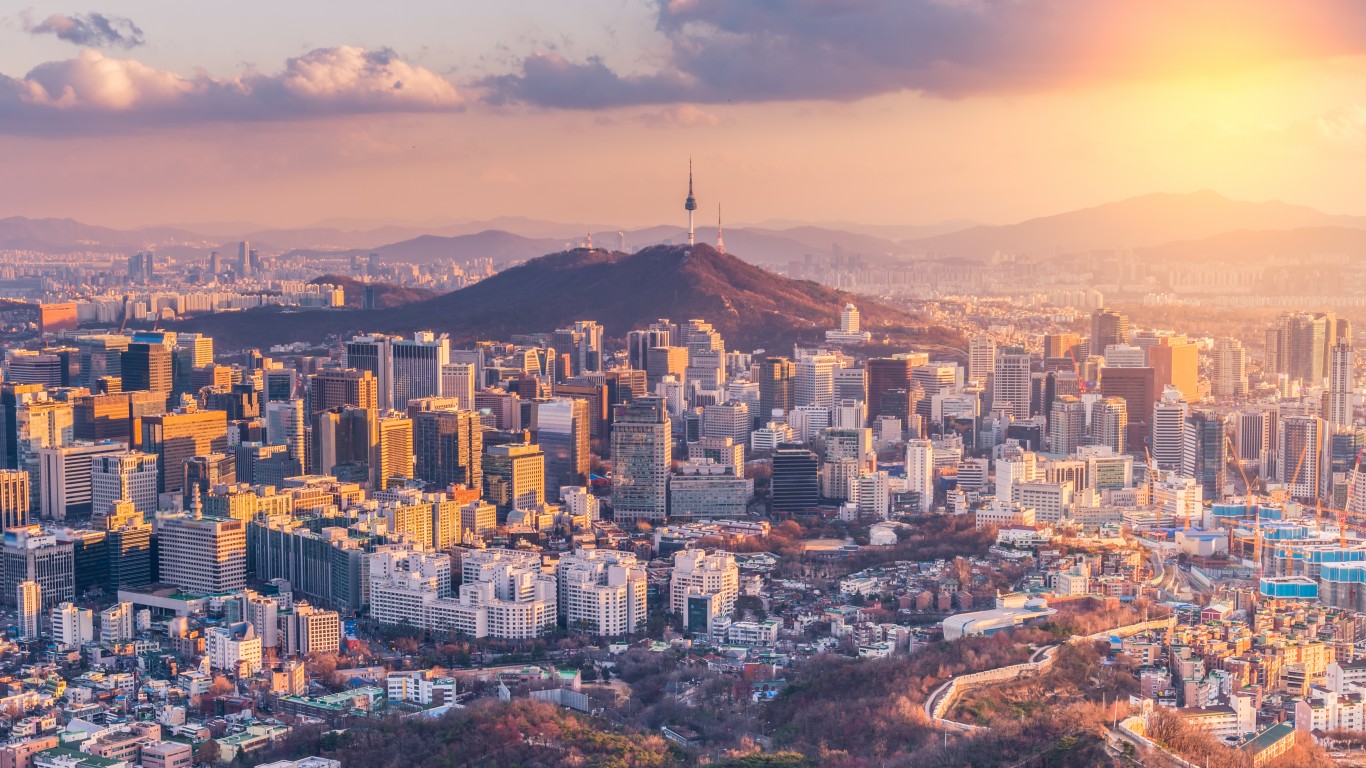
14. Seoul, South Korea
> Population: 10.0 million
The capital of South Korea, Seoul ranks as the third best city in Asia for health security and the fifth best worldwide. Seoul accounts for approximately one-fifth of the population of South Korea, where the life expectancy at birth is 82.7 years — more than 10 years longer than the global average.
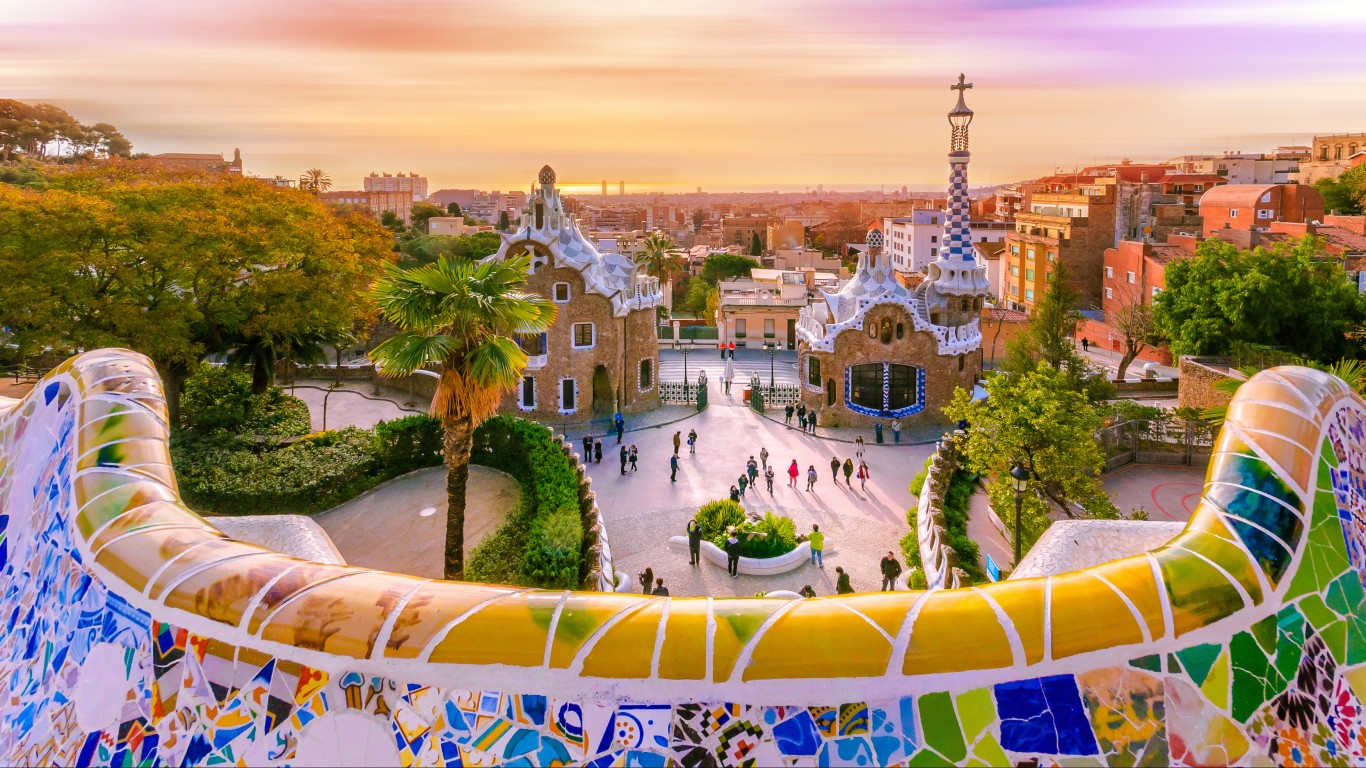
13. Barcelona, Spain
> Population: 5.5 million
While Barcelona faces an increased risk of flooding along its Mediterranean coastline caused by climate change, the city aims to reduce its carbon emissions by 45% by 2030 and to zero by 2050. Barcelona received an “A” in climate leadership from climate advocacy group CDP, and of all 60 cities considered it ranks third in infrastructure security.
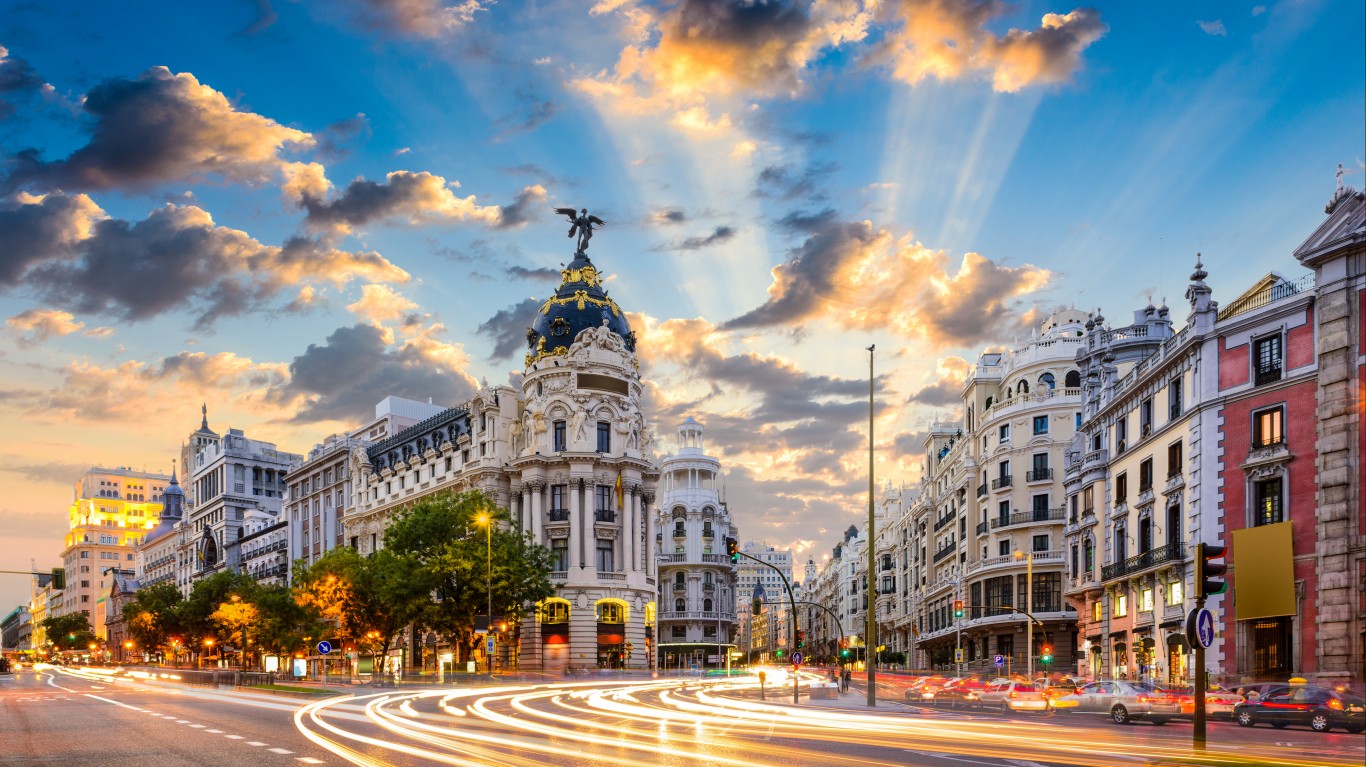
12. Madrid, Spain
> Population: 6.5 million
Madrid ranks as the second best city for infrastructure security and the 12th safest city overall of the 60 cities considered in the study. Since 2015, the Spanish capital has climbed 13 places in the Safest Cities Index.
[in-text-ad-2]
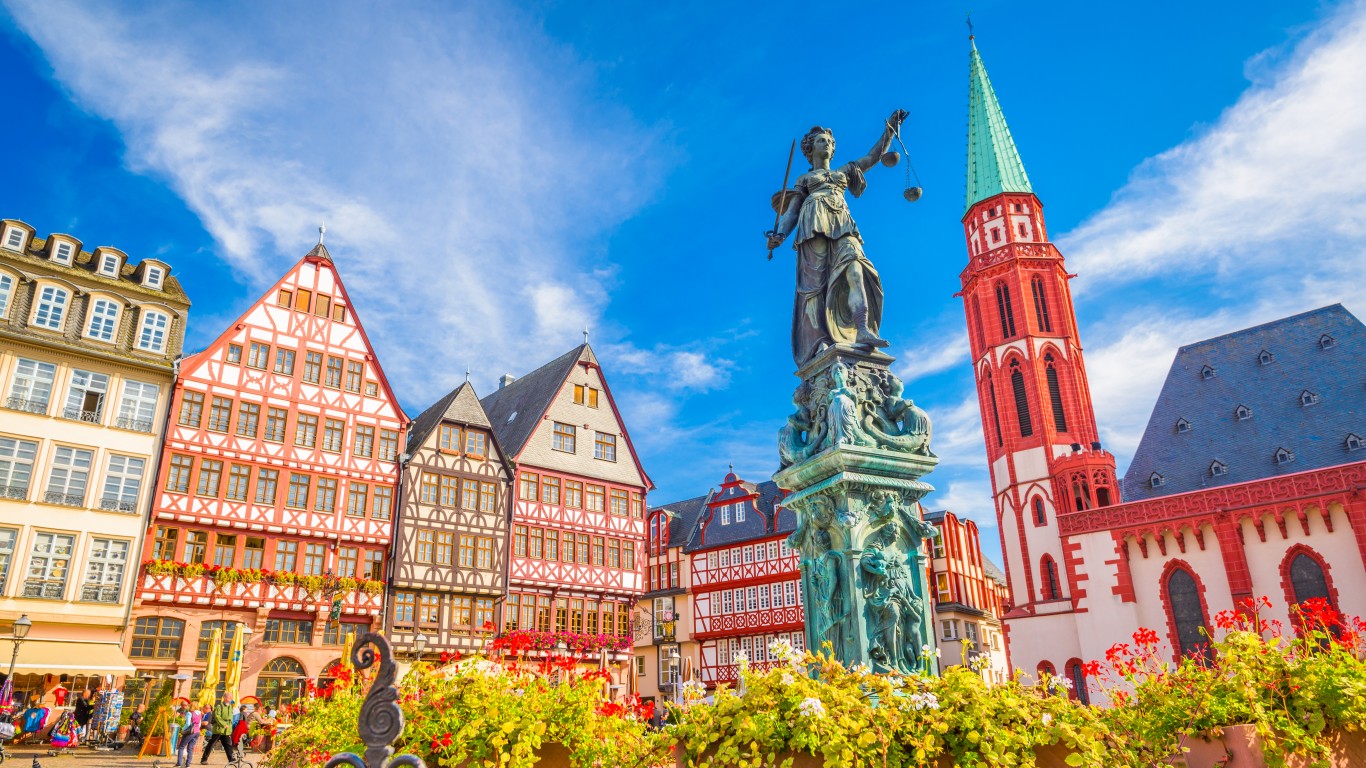
11. Frankfurt, Germany
> Population: 747,848
Frankfurt, Germany, ranks third in health security, which includes factors like access to health care and traffic safety. There were 15 motor vehicle fatalities per 10,000 residents in Frankfurt in 2016, fewer than in many other major European cities.
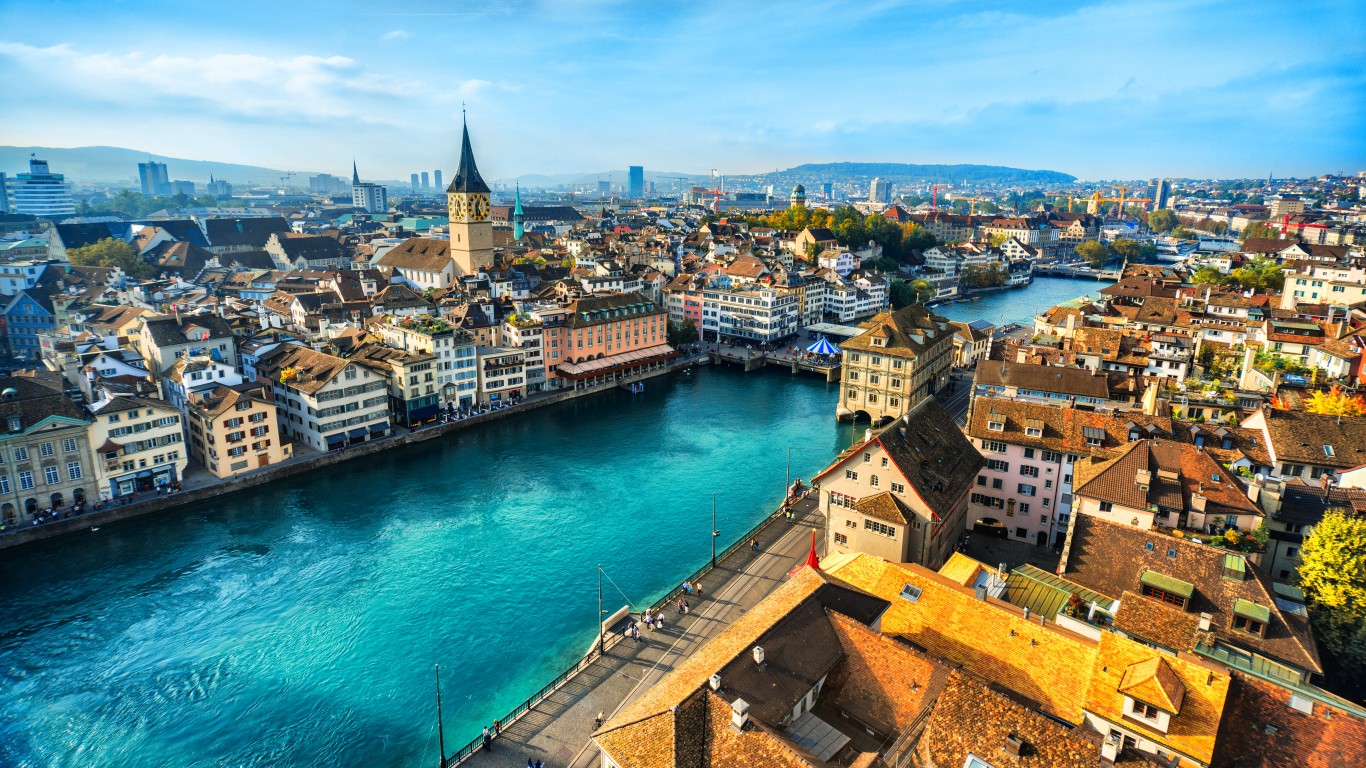
10. Zurich, Switzerland
> Population: 1.4 million
One of the most walkable cities in the world — 44% of trips in the city are made on foot or bike — Zurich ranks as the fourth best city for health safety. There were just 7 motor vehicle fatalities per 10,000 residents in Zurich in 2016, among the least of any large European city.
[in-text-ad]
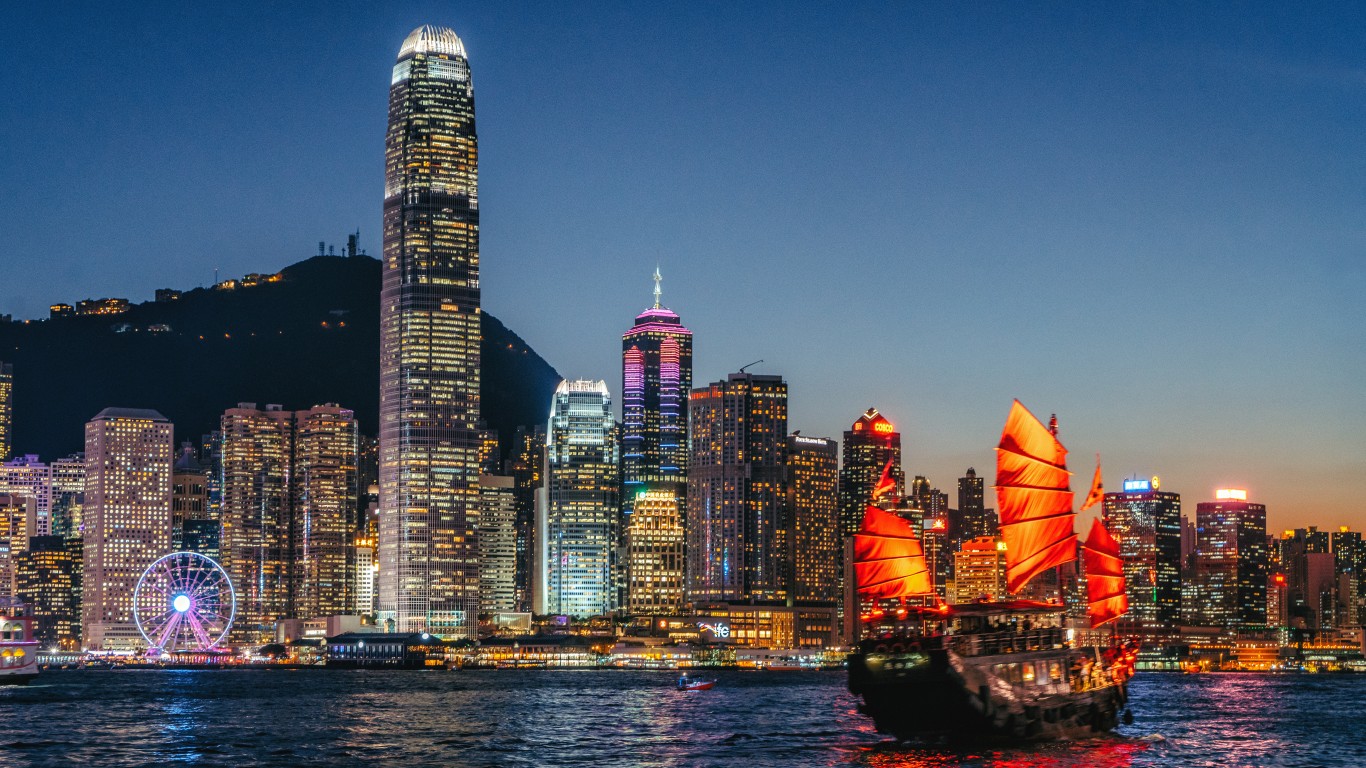
9. Hong Kong
> Population: 7.4 million
While the relationship between income and crime is complicated, the wealthiest cities often have the lowest crime rates. Hong Kong — the richest city in the world as measured by the number of ultra-high-net-worth individuals who call it home — has reported a declining crime rate for 12 consecutive years. The city currently ranks as the seventh best city for personal safety.
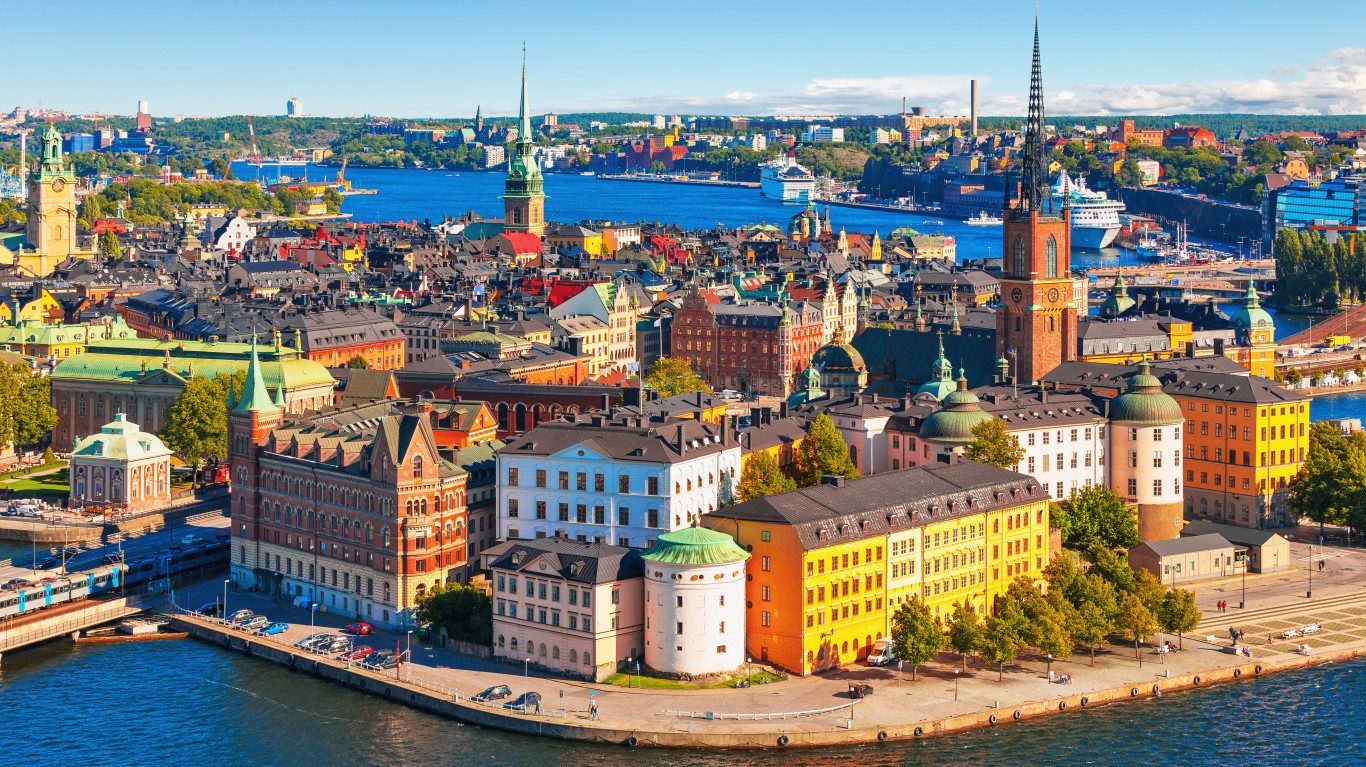
8. Stockholm, Sweden
> Population: 1.6 million
One of the most walkable cities in the world, Stockholm also ranks high in infrastructure, personal, and health security. In 2017, there just 4 motor vehicle fatalities per 10,000 residents in Stockholm, nearly the least of any European capital.
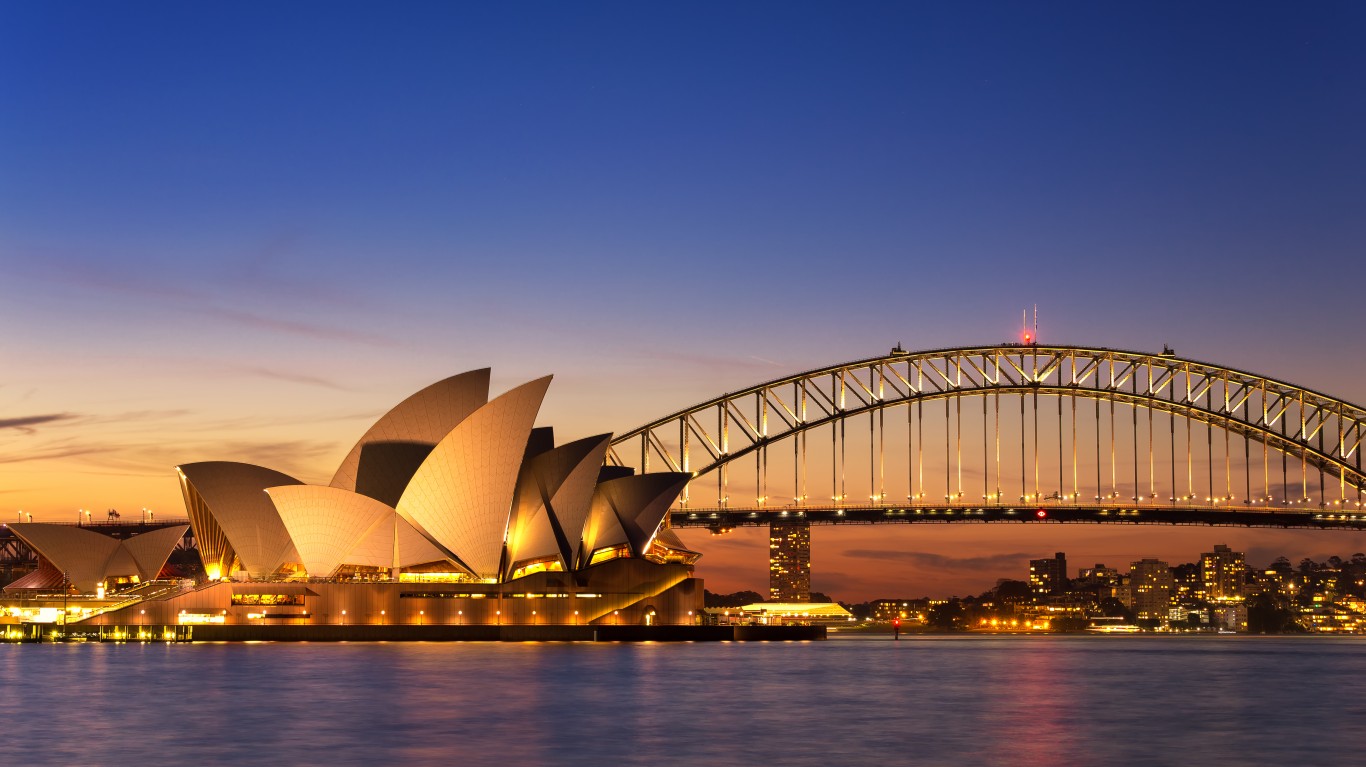
7. Sydney, Australia
> Population: 4.8 million
The largest city in Australia, Sydney’s highest-ranking safety factor is health security. Life expectancy in the Sydney metropolitan area is 83.8 years, more than 11 years longer than the global average.
[in-text-ad-2]
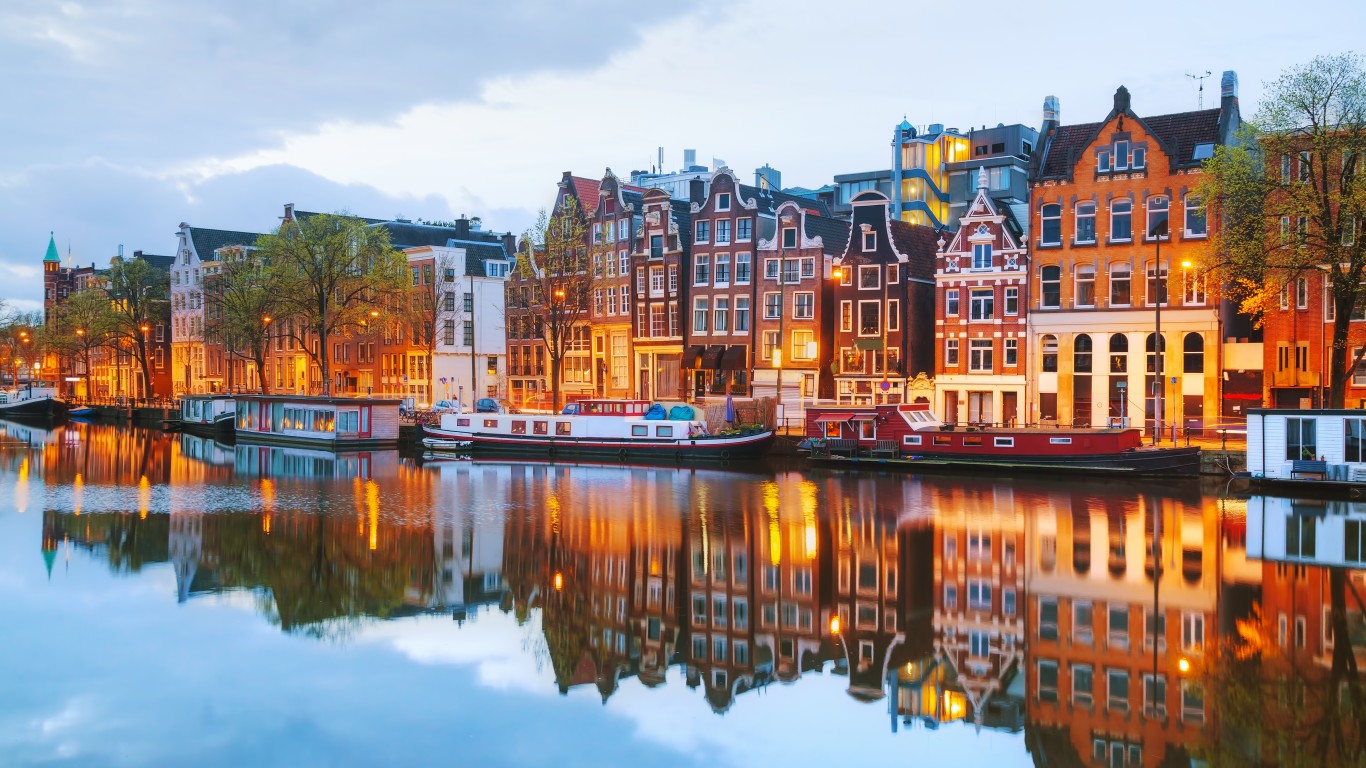
6. Amsterdam, Netherlands
> Population: 1.1 million
While Amsterdam is one of the healthiest and cleanest cities in the world, the Dutch capital’s highest-ranking safety category is digital security. In January 2019, the Port of Amsterdam launched the Cyber Security Program, a network designed to help detect and mitigate the effects of cyberattacks throughout the North Sea Canal area.
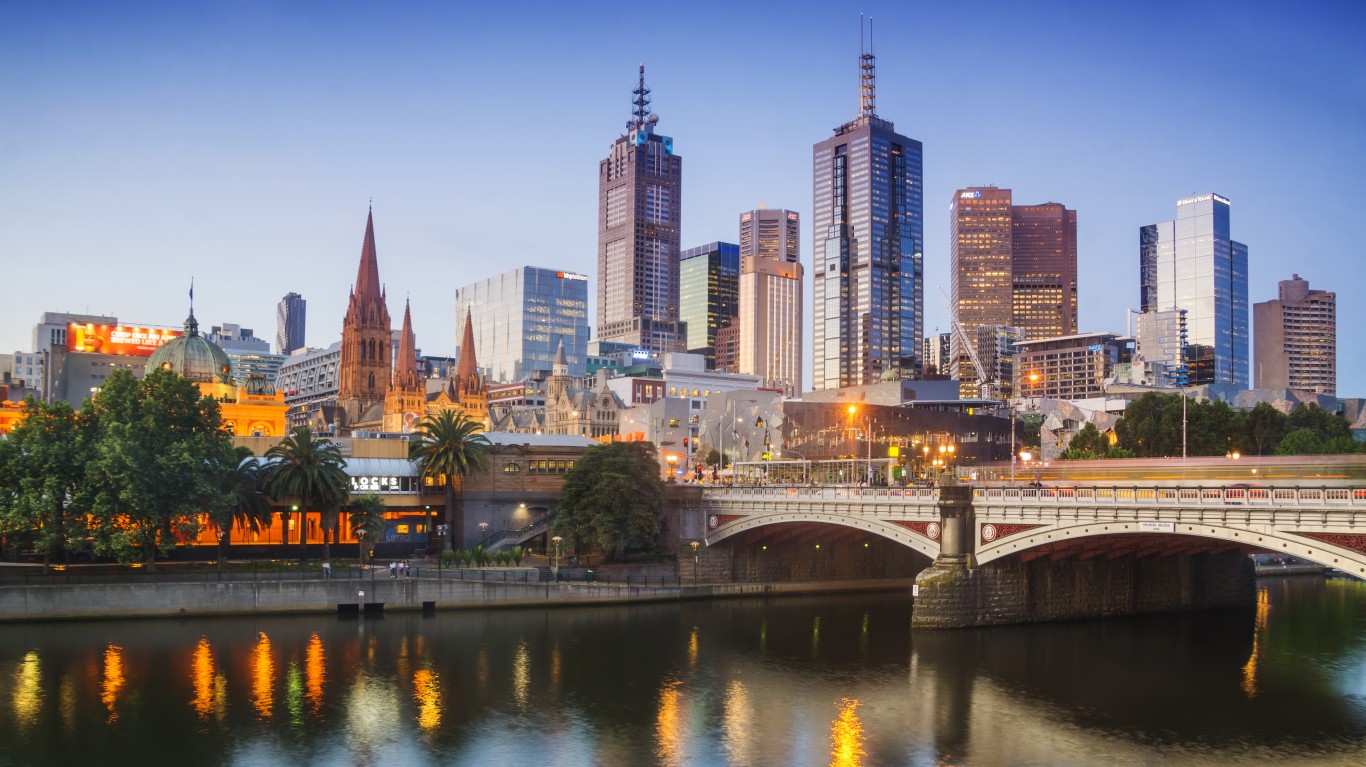
5. Melbourne, Australia
> Population: 4.8 million
Like other cities in the Asia-Pacific region, Melbourne, Australia, ranks highly in health security. The life expectancy at birth in the Melbourne metropolitan area is 84.0 years, the longest of any city in Australia and more than 11 years longer than the average life expectancy worldwide.
[in-text-ad]
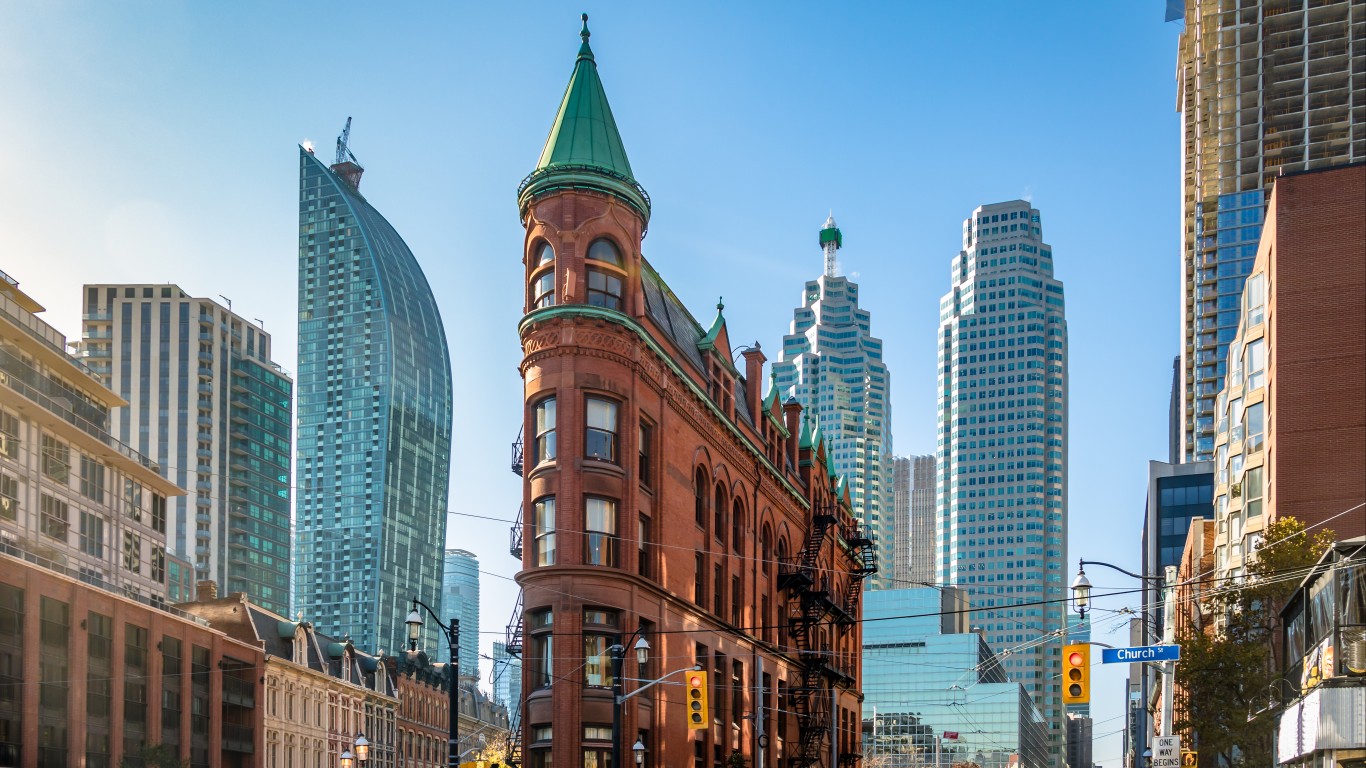
4. Toronto, Canada
> Population: 6.1 million
Toronto ranks highly for its digital security and personal safety efforts. Forseeing the growing need for cybersecurity, the Toronto Police Service launched Operation Reboot, a task force dedicated to policing cybercrime. This led to the development of the Computer Cyber Crime Section of the police department. According to an October 2016 report from consulting firm Deloitte, more than half of all cybersecurity companies in Canada are headquartered in the Greater Toronto Area.
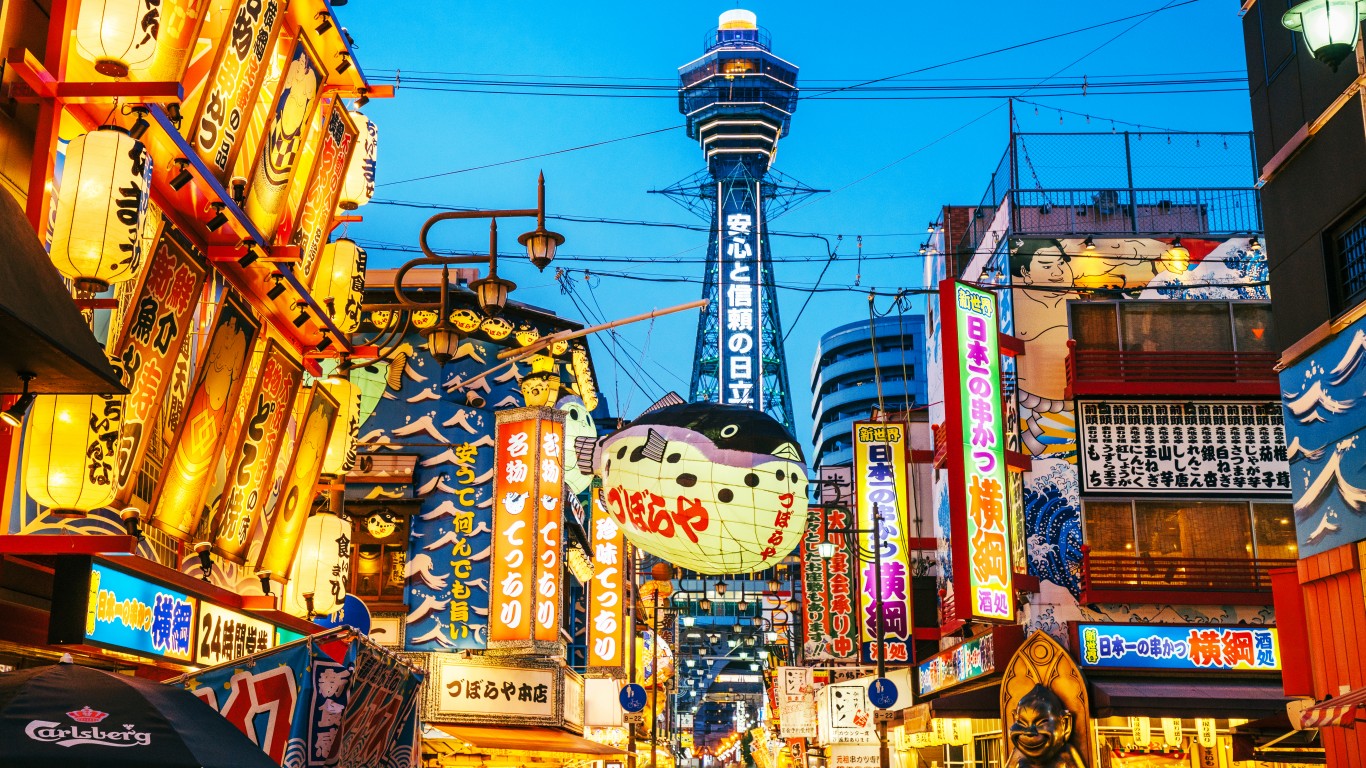
3. Osaka, Japan
> Population: 19.3 million
While the relationship between income, health, and violent crime is complicated, wealthier cities tend to have healthier populations and lower crime rates. Osaka, Japan — the 10th richest city in the world as measured by the number of ultra-high-net-worth individuals who call it home — ranks as the best city in the world for health security and the third best for personal security.
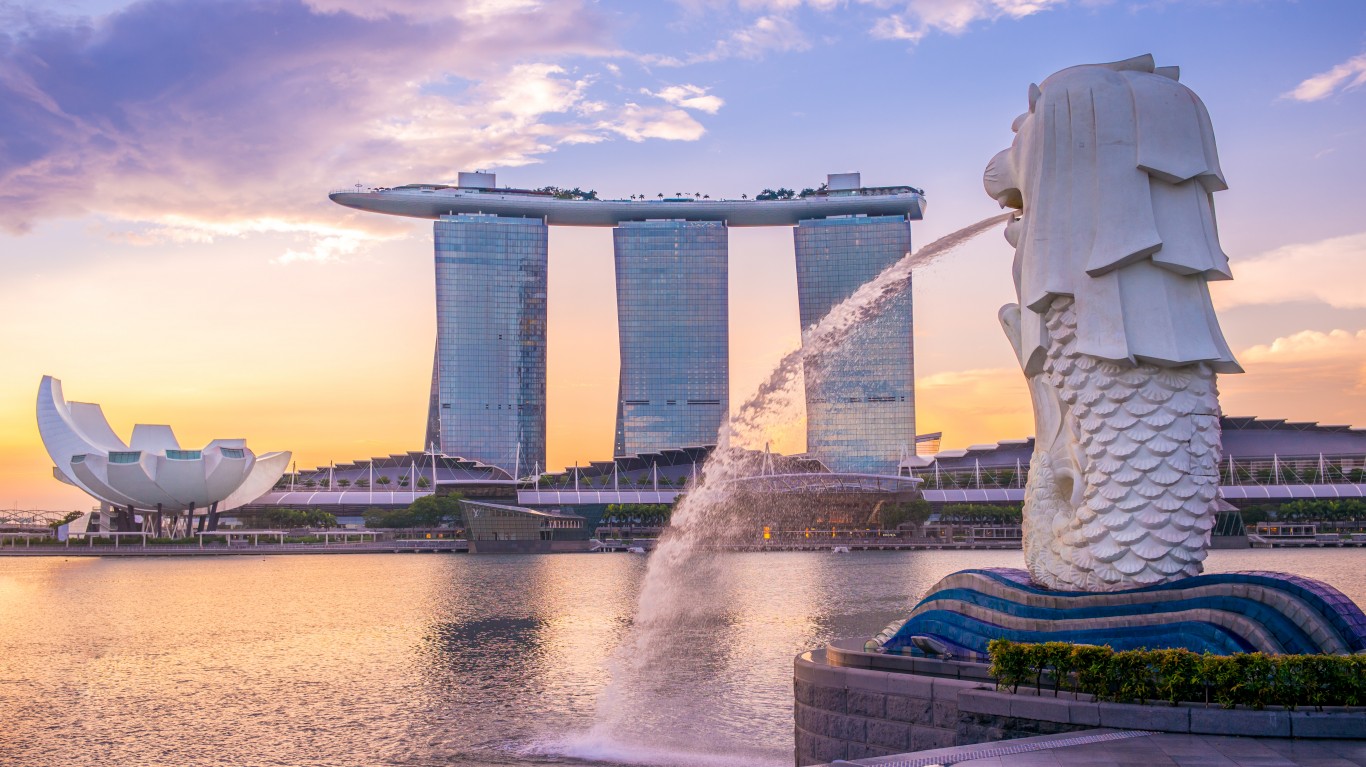
2. Singapore
> Population: 5.8 million
Singapore ranks as the top city in measures of infrastructure and personal security and the second safest city overall. According to the Singapore government, the PolCam network — a network of approximately 65,000 police cameras throughout the city — has helped solve more than 2,300 cases and deter a significant number of crimes since its introduction in 2012.
[in-text-ad-2]
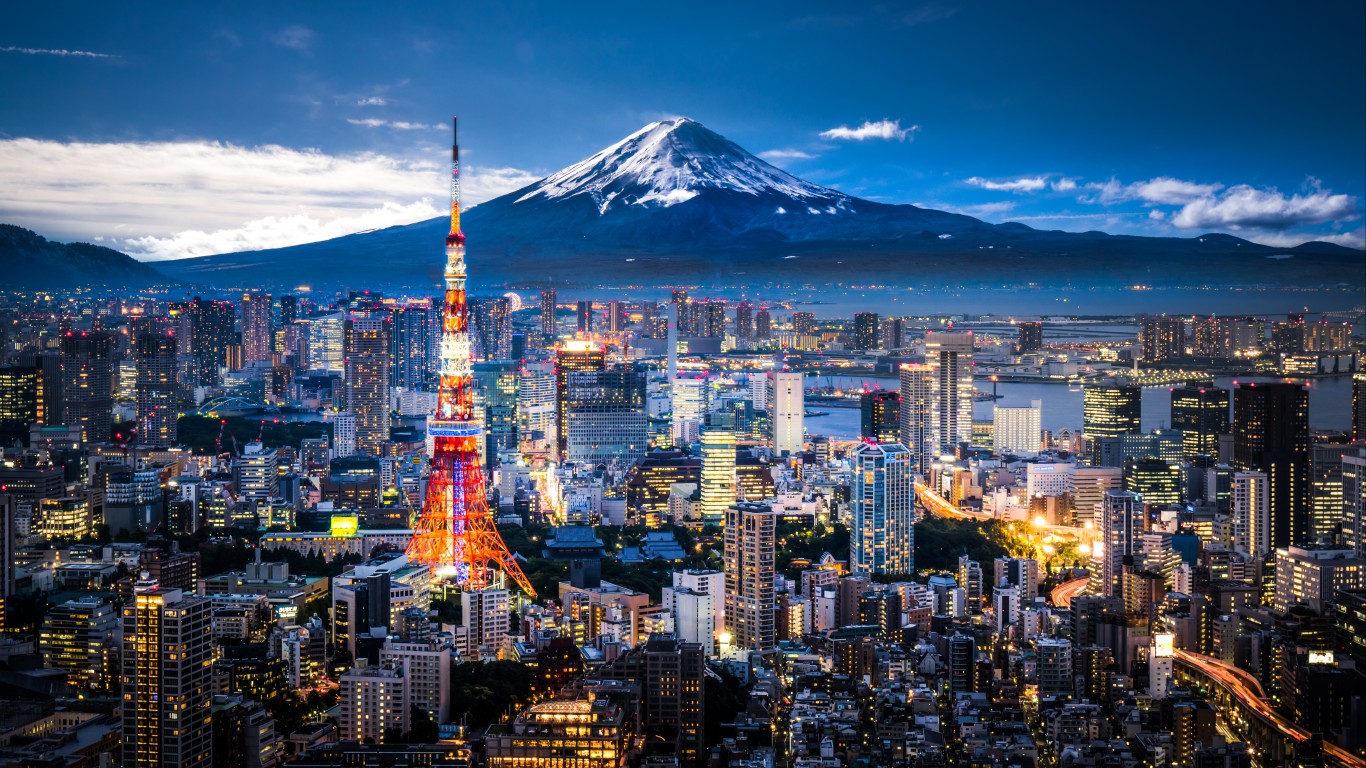
1. Tokyo, Japan
> Population: 37.5 million
For the second year in a row, Tokyo tops the list of the world’s safest cities. According to The Economist, the low threat of crime in Tokyo may be due in part to the emphasis in Japanese culture on honesty and empathy. Earlier this year, the Metropolitan Police Department reported that in 2018 Tokyo citizens turned in a record 3.7 billion yen ($33.7 million) — nearly half of all cash that was reported missing for the year.
Detailed Findings
One of the biggest factors in urban safety is health security — access to health care, the provision of social care services, and a healthy urban environment with green space, public and pedestrian transport, and few traffic casualties. Many cities with the best health infrastructure are in countries where people live the longest. Health care spending and policies — decisions that are often made at national levels — as well as the wealth of city residents can all play a role in access to quality health services.
One of the fastest-growing threats to urban security is cybercrime. As more cities embrace smart city technologies and move to open data platforms, they face an increased risk of cyberattack. There were 130 large-scale cyberattacks in the United States alone in 2017, an increase of 27% from the year prior.
In recent years, cities such as Hong Kong, Tokyo, and Los Angeles have created dedicated agencies for combating cybercrime, while others have implemented new policies aimed to reduce their cyberattack vulnerability. San Francisco, for example, banned the use of facial recognition software by police and other agencies in May 2019, the first major American city to do so.
Other major threats to urban security include climate change and personal safety. Global sea levels are rising at a rate of about one-eighth of an inch per year, placing coastal population centers at an increased risk of flooding. While several cities on this list are in countries increasing carbon emissions the fastest, many are investing in green infrastructure that can help mitigate climate change, such as permeable pavements and green spaces.
Personal safety includes factors like violent crime and the frequency and severity of deadly attacks. Many of the cities with the worst personal security are in the Middle East and Latin America, while the cities with the best personal security are in the Asia-Pacific region and Western Europe.
Methodology
To determine the safest cities in the world, 24/7 Wall St. reviewed data from the Safe Cities Index 2017, a report from The Economist Intelligence Unit of media company The Economist Group ranking 60 world cities across 49 indicators. City rankings on digital security, health security, infrastructure security, and personal security also came from the report. Data on population for various statistical measures — city proper, metropolitan area, and urban agglomeration — came from the report.
Credit Card Companies Are Doing Something Nuts
Credit card companies are at war. The biggest issuers are handing out free rewards and benefits to win the best customers.
It’s possible to find cards paying unlimited 1.5%, 2%, and even more today. That’s free money for qualified borrowers, and the type of thing that would be crazy to pass up. Those rewards can add up to thousands of dollars every year in free money, and include other benefits as well.
We’ve assembled some of the best credit cards for users today. Don’t miss these offers because they won’t be this good forever.
Flywheel Publishing has partnered with CardRatings for our coverage of credit card products. Flywheel Publishing and CardRatings may receive a commission from card issuers.
Thank you for reading! Have some feedback for us?
Contact the 24/7 Wall St. editorial team.
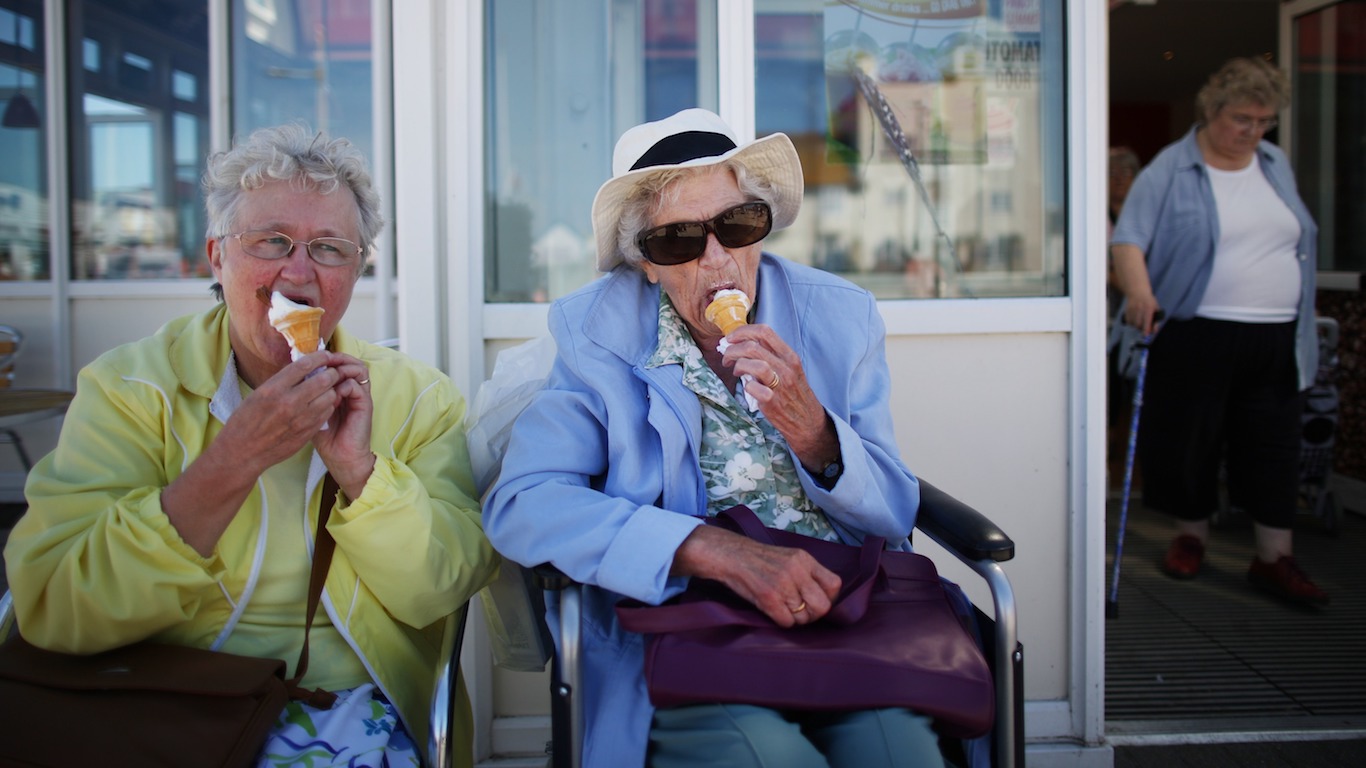 24/7 Wall St.
24/7 Wall St.


